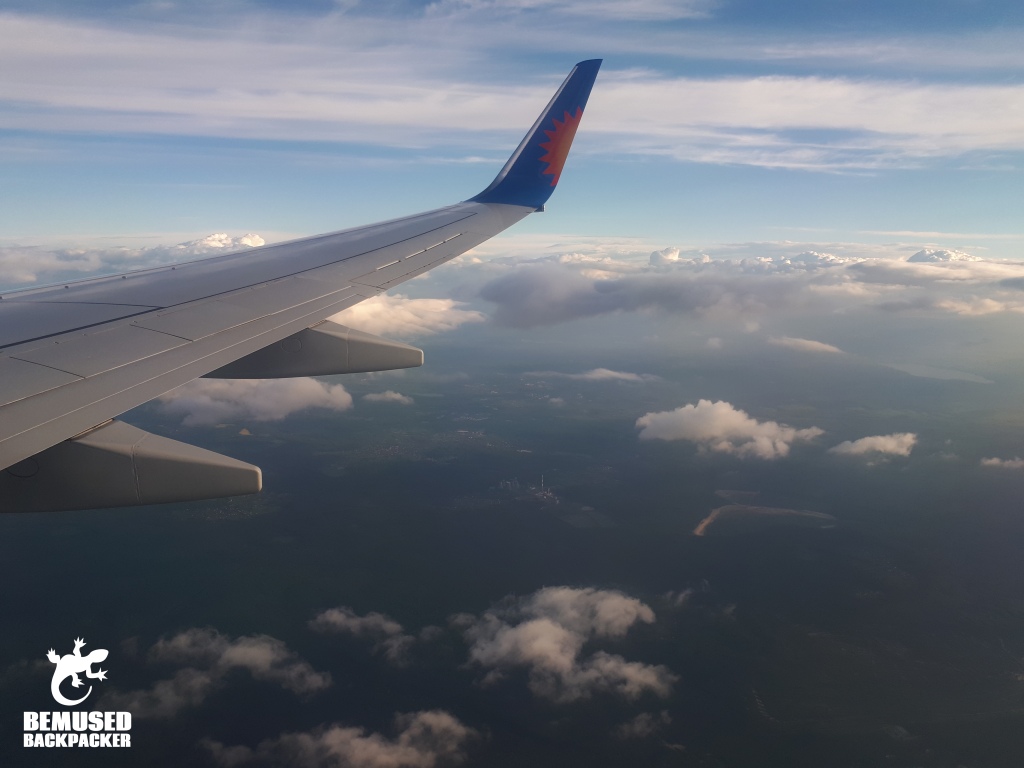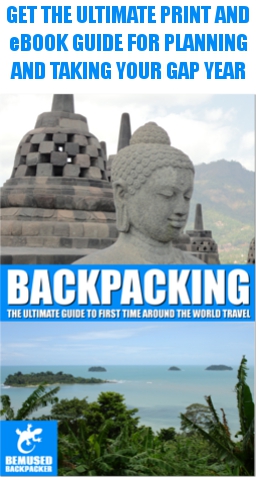
Sudan is a country that has quite literally been torn in half by civil war and conflict, with the North and South being split into two distinct and independent states since 2011. It is a huge shame this truly beautiful and astounding land has been so heavily scarred by war and violence, as there really are amazing experiences to be had here for the intrepid traveller, and you can’t help but think what the country could become.
There are severe travel warnings and restrictions for large parts of Sudan by most governments advisory agencies, including the Darfur region and Southern Kordofan which still sees heavy fighting, but there are some areas where life continues as it always has and it is relatively safe to travel. For those travellers who make the sometimes considerable effort to get a visa and stick to the relatively safe areas, then you will have a truly memorable trip that revels in the spirit of true independent travel and adventure. You won’t see any package tourists here, you won’t see any travel agents offering all inclusive package tours to sectioned off complexes. Travel in the Sudan is real travel, travel without a comfort zone, and it is this sense of adventure and discovery that is perhaps one of its biggest attractions.
Culture And Etiquette.
The North of Sudan is predominantly Muslim, and it is wise for any traveller to respect and adhere closely to any cultural or religious norms, specifically dressing appropriately. Christianity and indigenous animist religions are more common in South Sudan, but the conservative social and cultural norms still apply.
The Sudanese can be extremely friendly and hospitable, especially since tourists are a relatively rare sight here, and English is widely spoken, although you will have a much smoother and richer experience if you attempt to learn some Arabic too.
What You Need To Know.
Visas.
Most nationalities will need a visa to enter Sudan, including residents of the UK. You can apply for one at the Sudanese embassy in London. If you are travelling elsewhere then you will need to visit the Sudanese embassy in that capital. Currently Cairo remains the easiest place to get one. Most nationalities can get a visa on arrival provided they have an entry permit arranged by a hotel or tour operator. You should also register with the Aliens department at the Ministry of the Interior within three days or you may be fined. This costs around 35 GBP at the time of writing and some larger hotels can do this for you for a fee, which is probably worth it to avoid the queues and beauracracy.
Health.
As for any destination, routine vaccinations including measles, mumps and rubella (MMR), diptheria, pertussis, tetanus and varicella for example are always recommended.
Hepatitis A, Hepatitis B, rabies and typhoid, and boosters for polio, tetanus and diphtheria (if you don’t have them) are strongly recommended for most other travellers to Sudan as there is a relatively high risk of these diseases in this country.
Yellow fever is a risk in Sudan, and it is highly recommended that you are vaccinated against this for health reasons, but it is also a (usually strong) requirement of entry that you show proof of yellow fever vaccination before you enter the country and if you travel to any other country after Sudan you will have to show it as well.
Malaria is a high risk across all of Sudan and anti malarial prophylaxis is highly recommended for all visitors in any area, speak to your nurse or GP to see which prophylaxis is right for you. Dengue fever is also a significant risk and anti mosquito measures are advised at all times.
Read more:
Do You Really Need Anti Malarial Medication On Your Gap Year?
The Ultimate Guide To Travel Vaccinations.
Why Travel Vaccinations Are Important.
Crime and Safety.
There is very little to fear in Sudan in terms of crime. Petty crime like theft does occur, but can mostly be negated by common sense precautions such as keeping a close eye on your belongings. The threat of serious robbery or harm is extremely low.
The biggest danger to your safety is obviously the areas where conflict is still rife. Current guidance from the FCO advises against all travel to the South and the West, including Darfur, the Red Sea State border with Eritrea; the Abyei region; Southern Kordofan and Blue Nile states.
The rest of Sudan, contrary to popular belief, is very safe to travel in. Port Sudan, Wadi Halfa and Khartoum itself pose no specific risk to travellers but it should go without saying to stay alert. Listen to the travel warnings of places to avoid, stick to the relatively safe areas that are free of conflict, keep your ear to the ground with local news for any new situation reports and you will be absolutely safe.
Read more:
Should You Travel To Dangerous Countries?
The Reality Of Fear And The Truth About Travel Safety.
Travel Safety Advice. The Good, The Bad And The Downright Crazy.
Costs and money.
The official currency of Sudan is the Sudanese pound, which is then broken up into 100 piastres. Unfortunately just to confuse matters, prices may be quoted in this new currency, the old pound or even dinars.
Credit cards are next to useless in Sudan and cannot realistically be used anywhere. The best thing to do is to bring foreign currency in with you, either GBP or USD, then exchange it as you need it.
Accommodation at the budget end of the scale is extremely cheap, costing just a couple of pounds (GBP). The quality at this level however is not always that great, and does not improve much at budget midrange level, although prices do shoot up disproportionally to the quality and lack of amenities. Upper mid range and top end hotels are of a high standard, but unfortunately also come with a Western price tag. The art of boutique hotels holding the middle ground has bypassed Sudan completely.
Food is a hot pot of flavours and African and Middle Eastern cultural influences in Sudan and is extremely good value for money. You can eat well at street food level for less that £1 GBP.
Transport options are a little hit and miss in Sudan too, and will either test your patience completely or appeal to your sense of adventure. Either way it is still relatively cheap to use public transport. The most expensive part of your transport budget is likely to be the ferry from Egypt into Sudan.
When to go.
Like most countries in the region, common advice dictates that November to March is the best time to go as it is cooler and dry, but in truth anytime is a great time to visit provided you prepare for the weather. The summer can obviously get extremely hot, especially in the desert, and the winter can get surprisingly cold, the desert can be freezing at night.
Places To See.
Meroe Pyramids.
Meroe is a huge archaeological site and perhaps one of Sudan’s most unique, iconic and memorable sights. The ancient cemetery of the Meroitic pharaohs may pale in comparison to its Egyptian counterparts, but are hauntingly unique and there won’t be another tourist or tour group for miles!
Khartoum.
A modern, busy city with so much heritage it is second only to Cairo! It is filled with almost endless souqs and some of the best places to sit, enjoy a drink and watch the two Niles converge!
Soleb.
Getting here is a little hard (or fun and adventurous depending on your outlook), but this magnificent temple built by Amenhotep III, similar in design and architecture to much of the temples in Aswan.
Sai Island.
If you love history then you can’t beat Sai Island for a strata like overview of Sudan’s past. Starting with an ancient settlement from at least 1500 BCE, a ruined temple from the Middle Kingdom, an Ottoman fort and the ruins of a medieval church all beckon to tell the intrepid traveller the stories of their respective ages.
Perhaps the best part of a visit to the island is getting there, by hiring a boatman in the nearby village of Tabaj, you can enjoy a leisurely personal cruise through a truly stunning part of Sudan.
Jebel Barkal.
With the exception of the Pyramids at Meroe, this is possibly one of the greatest and most iconic attractions in Sudan, but like the pyramids, is greatly bereft of tourists.
This picturesque mountain was revered by both the ancient Egyptians and the Kushites as the home of the great sky God Amun. Today there are a number of pyramids to visit, a small museum and the temple of Mut, all costing just a few pounds each. You can also take a short hike, around twenty minutes to half an hour depending on your fitness levels, to the top of the mountain for panoramic views of the site and the nearby city.
Things To Do.
Shopping and people watching in Omurdman souq.
This famous market is a world away from the tourist traps like Khan El Khalili found in Cairo, this is the real deal. Vast, noisy, crowded and dusty, it is like taking a step back in time, and even if you don’t go to buy anything it is worth it for the experience.
Spend a LOT of time in the museums.
The National museum in Khartoum is a prime example of how much history and heritage Sudan has to share, and like neighbouring Egypt, you would be seriously remiss by not spending at least a little time learning about it.
Watch the whirling dirvishes.
Head to the Hamed Al Nil Tomb every Friday afternoon and you can watch this amazingly bewildering Sufi ritual be performed as they stir up a ton of dust in honour of Allah. Starting with a long procession with a lot of chanting, clapping and shouting, eventually the drums start in and it really is a sight to behold!




